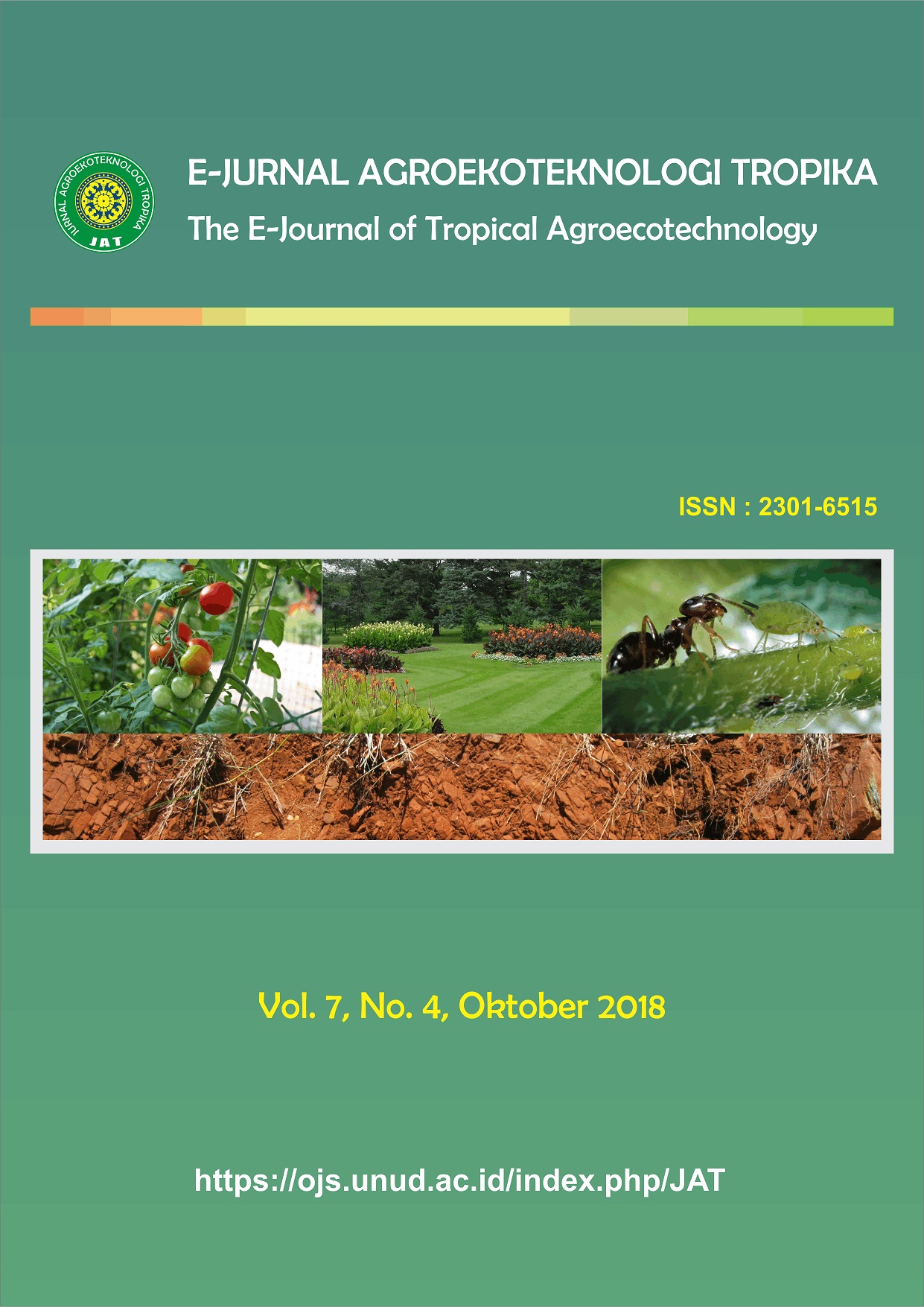Pengaruh Rhizobakteria terhadap Hasil dan Mutu Benih Kacang Tanah (Arachis hypogaea L.)
Abstract
Effect of Rhizobacteria on the Results and Quality of Peanut Seeds (Arachis hypogaea L.)
This research aims to know the kind of rhizobakteria that have a better capability in improving yield and quality of seeds. The research was carried out in September – December 2017. The research started from the time of planting seed quality test until after harvesting. This study used a Randomized Complate Block Design (RCBD). The treatments tested were four types of rhizobakteria and one control (without application of rhizobakteria). Observations were made to plant height, number of leaves, the content of chlorophyll, the filled poods per plant, contains the seed weight per Ha, seedling vigor, storage vigor, electrical conductivity and weight of 1000 of seed. The results showed that the four rhizobacteria, RB35 (undis 1), RB36 (undis 3), RB3 (Kara Benguk), and RB9 (lamtoro plant) were able to increase the yield and quality of seeds. Peanut seeds yield per hectare with rhizobacteria treatment was able to increase yield with a range of 66,49% - 128,35% compared with controls was 1.94 tons / ha. Rhizobakteria increased the weight of 1000 seeds with a range of 42,43% - 70,29% compared with controls of 279.24 g. Treatment of rhizobacteria increased storage vigor of seeds by a range of 5.29% - 9.52% compared with control. Moreover also has real against the peanut plant growth (plant height and the number of leaves), the content of chlorophyll, the number of pods containing seed quality (physical and physiological).



